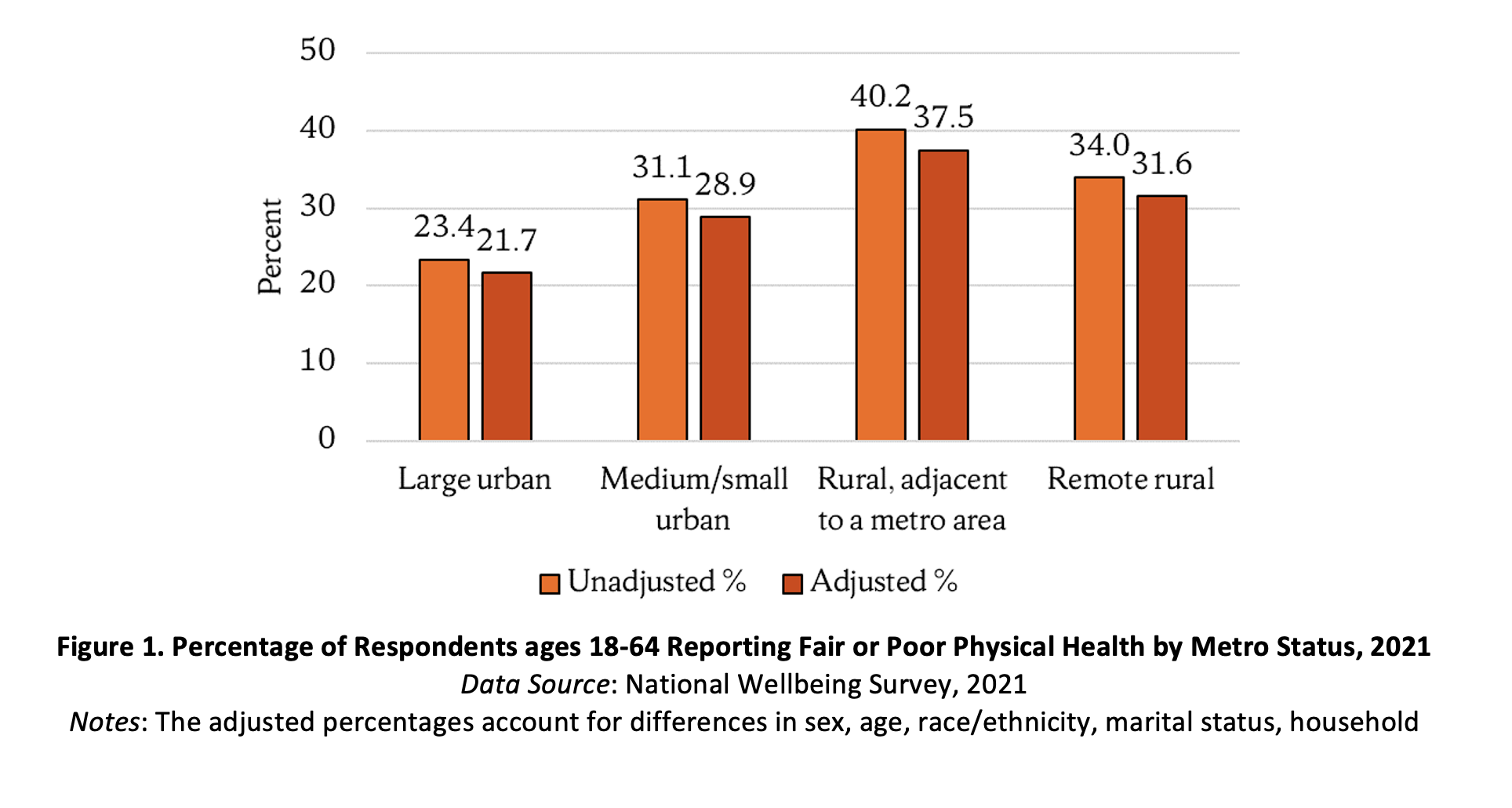
Self-rated health is considered a strong predictor of chronic disease risk and premature mortality. This brief by Shannon M. Monnat, Syracuse University, and Danielle Rhubart, PRI associate at Penn State, analyzes data from the National Wellbeing Survey (NWS), a sample of approximately 4,000 U.S. working-aged adults (ages 18-64) conducted in Feb-March 2021 to examine differences in self-rated physical health among residents of large urban counties (counties in a metro area of 1+ million people), medium/small urban counties, rural counties that neighbor a metro area (metro-adjacent), and rural counties that do not neighbor a metro area (remote rural). Results show higher shares of poor/fair self-rated health among residents of rural and small urban counties than in large urban counties. Policies that improve economic conditions and increase the availability of livable wage jobs, especially for those without a college degree, may help to reduce the rural health disadvantage. Read more here.